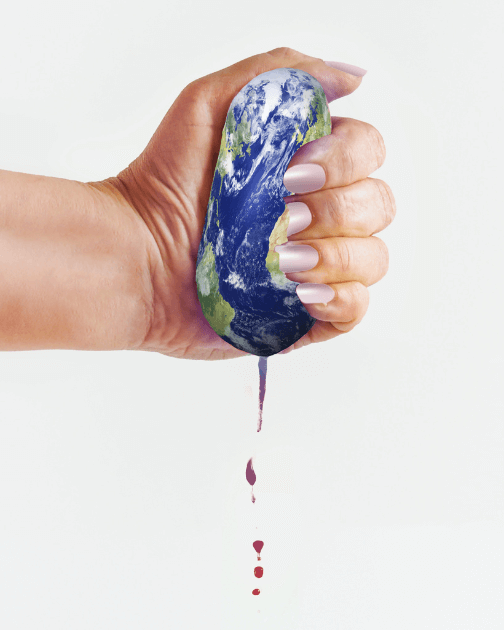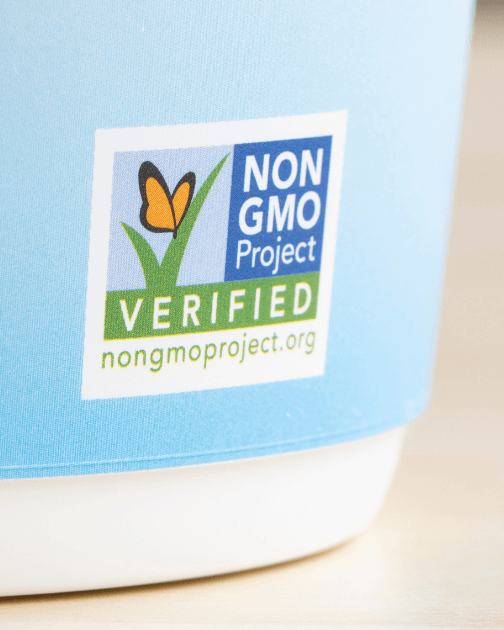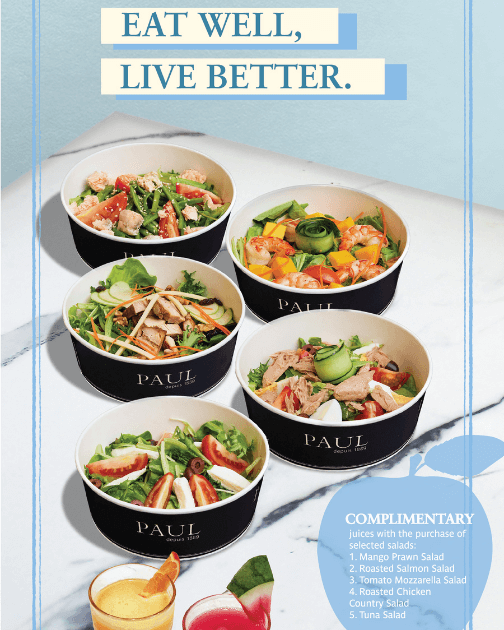The earth is heading in a direction where we’ll potentially run out of food, due to relying on our unsustainable intensive farming practices, over-relying on imports, etc. Our first glimpse of this was when the Selayang Market shut down during MCO, which begged the question– how are we going to eat?
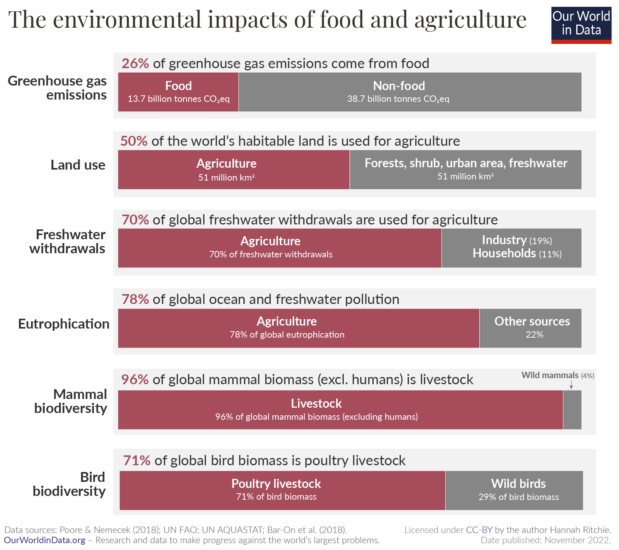

The scale of agriculture is so large that when we try to explain the problem, it’s not quite easy for consumers to picture it. 70% of our freshwater goes to agriculture, 1/2 of our land goes to agriculture, deforestation and soil degradation happen in agriculture, and all this does not happen in small amounts. We aren’t just depleting the Earth’s resources rapidly, we also have issues of overproduction, underpaid farmers, crop wastage, food wastage and so much more. We’re part of the top 5 most polluting industries in the world, and it doesn’t just stop there; agriculture practices also contribute to carbon emissions from the transport industry and plastic pollution in the food retail industry, both of which are a part of the top 5.
How exactly do we address all these issues? At present in Sunway XFarms, we grow vertically, we grow in cities, and we grow more with less. Malaysia is filled with underutilized, empty buildings, which is where our farms have been built in. Technology has come a long way, and we’re able to reduce water consumption by up to 90% with a circular system that recycles water. Read on to have a look at how we make a difference in our daily operations.
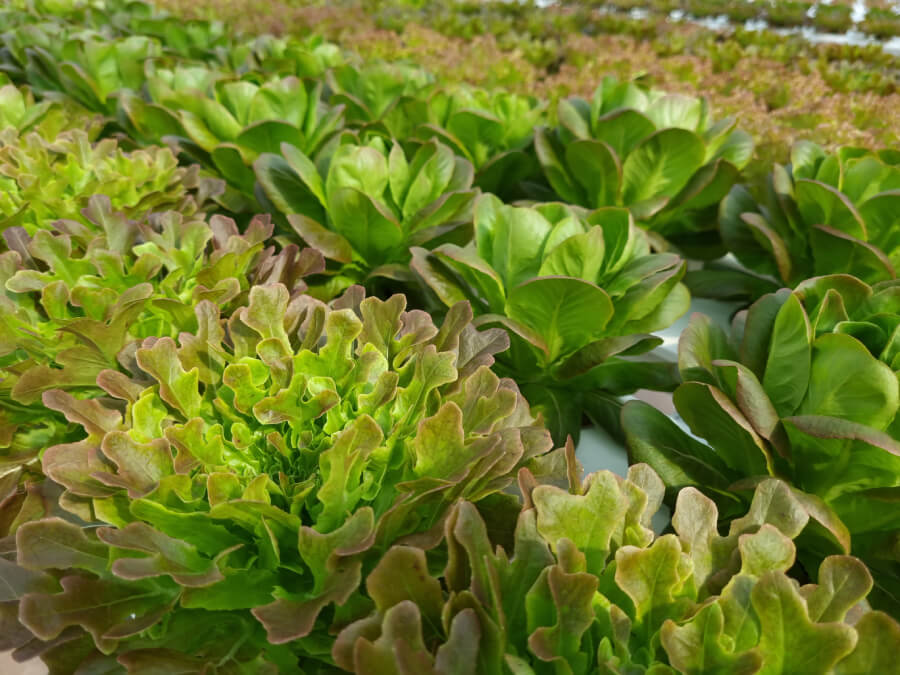
Sustainably Grown
As many of you already are familiar with, our vegetables are sustainably grown.
How? We grow vertically– using less land to grow more yield; we use a circular watering system– saving up to 90% of water in comparison to traditional farming; we use absolutely zero pesticides– no soil pollution, no water pollution, no triple washing required; and we grow close to you– less food miles, no planes, no cold trucks, just fresh and delicious vegetables! As a bonus, we grow in underutilized city spaces, transforming what would be abandoned into lush urban edible farms.
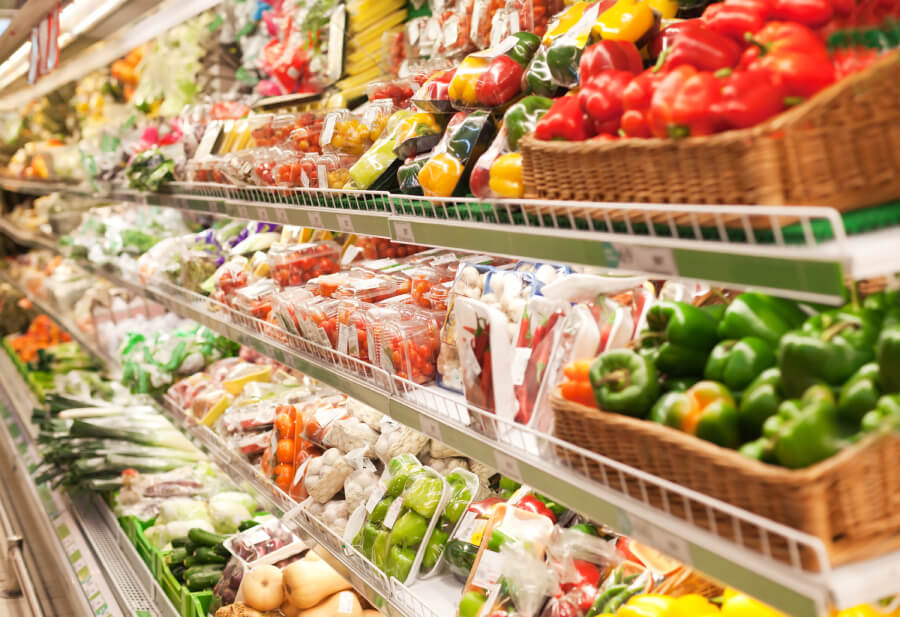

Shelf life
Our vegetables do not see more than 6 hours from harvest before they are in the hands of their consumers — no lengthy trips in trucks & planes, just directly from our farm to your home. How does this play into being planet-friendly?
In this journey, vegetables can lose up to 50% of their nutrients, and with each stop, produce can get spoiled and discarded. The vegetables you see on grocery shelves can take between 3-6 stops before even going to your home, meaning a fraction has already been disposed of with each journey taken. Moreover, when these vegetables reach the shelves, they already have a short shelf life, and will further be discarded if a consumer doesn’t buy and eat them before they go bad.
When we buy locally, not only do we get fresher and more nutrient-intact vegetables with less food miles and longer shelf lives, but they’re grown for flavour and not for shipping durability, so our produce ends up being tastier while being more environmentally friendly.
P./S. Did you know? Vegetables taste different depending on the time they are harvested. When a vegetable is harvested when fully mature, the taste is often fuller and sweeter. Give our happy bags a try and see for yourself!
Vegetable shortage
When you go to the grocery store, sometimes there is a shortage of vegetables and you might have to come back another day; sometimes the stock is old, and truth be told you really don’t know when those vegetables were harvested, how long they’ve been sitting on the shelves, and how long more you can store them for. Especially with monsoon season & flash floods, prices can be unpredictable, they can rise up to 3 times more than usual in price.
That doesn’t happen with us. Our promise to you is a guaranteed minimum amount a week depending on your package size. Our prices don’t rise because we aren’t suscept to weather and pest threats, and can grow consistently all year round. The day you receive your vegetables is the day they were harvested, and it doesn’t get much fresher than that– unless you grow your own food at home! We take the quality of our produce very seriously, its not just about the business, we want to provide local access to good food with good quality at good prices.
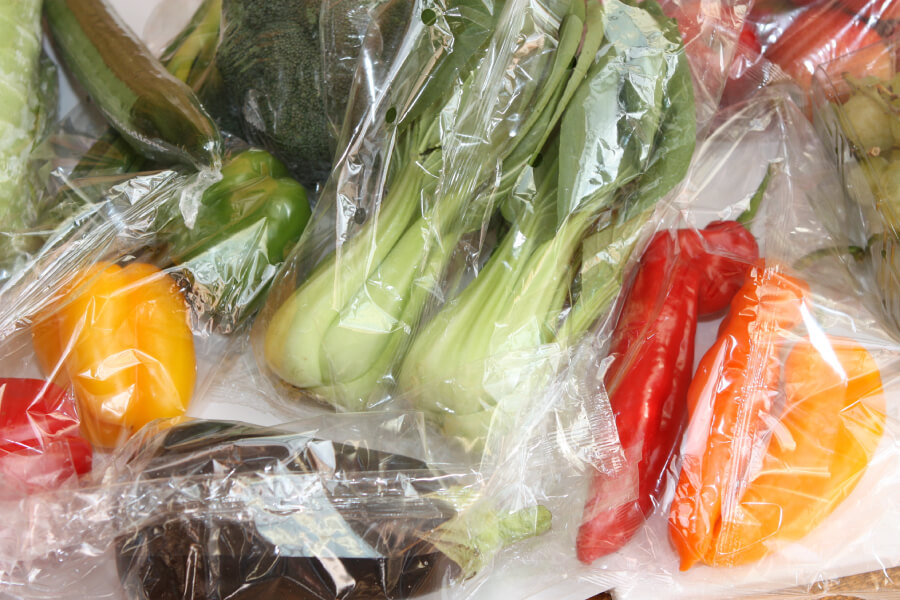

Plastic consumption
Plastic packaging is used to keep vegetables safe during their journey, their moisture intact, and to prevent any external elements such as dirty surfaces or water to harm the produce.
The food industry uses 148,000 tonnes of plastic a year, and this is just in Malaysia! As plastic is made from oil, you can already picture the amount of emissions generated. It also takes decades to centuries for plastics to break down while we continuously create more every day.
Is there a way our everyday consumer can make an impact? Of course! Shopping at zero-waste stores (aka packaging-free stores), bringing your own bags to shop for produce (be it the grocery store or a farm), and opting to buy from places that are close to you!
At Sunway XFarms we have the privilege of sending our produce to you in paper bags due to the direct journey from farm to you– whether you pick it up by yourself or have it delivered straight to your doorstep. Even so, we always encourage our subscribers, especially those who opt for self-pickups, to use our large veggie care boxes. It can hold your entire week’s worth of veggies and you can simply pop it in the fridge when you get home.
*Please note to remove your vegetables from the paper bags and store them in proper containers before putting them in the fridge.
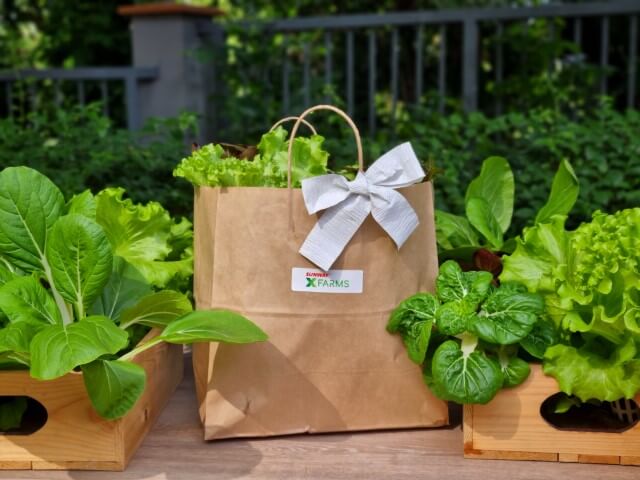

Of course, there is no single solution to address the many issues, and each alternative has its own pros and cons. Every day the team at Sunway XFarms is researching on how to further reduce our energy consumption, aiming higher in our impact on the planet without reducing the quality of our produce. By working together we can all address our dietary needs in a sustainable way, for the earth, the people & the future.

